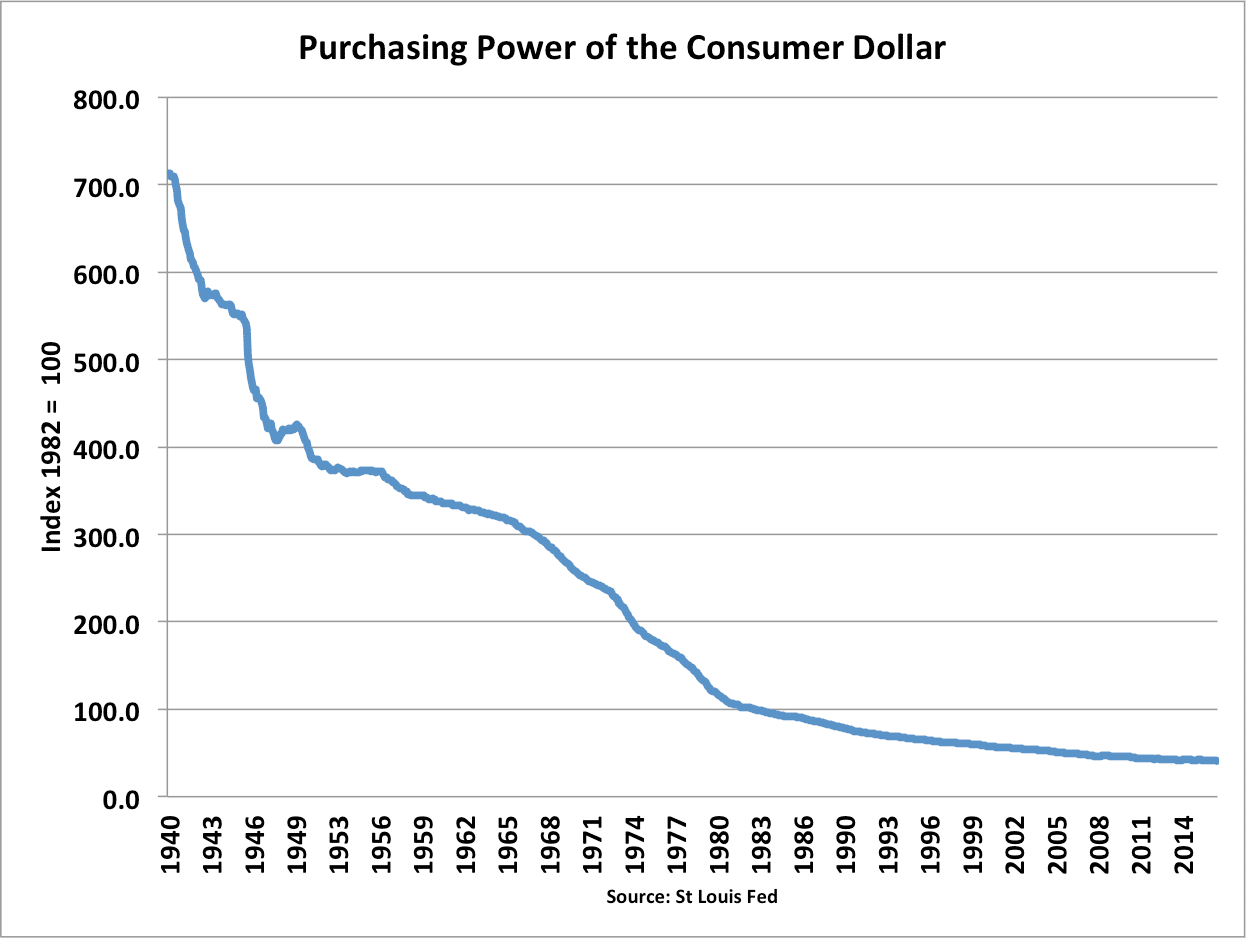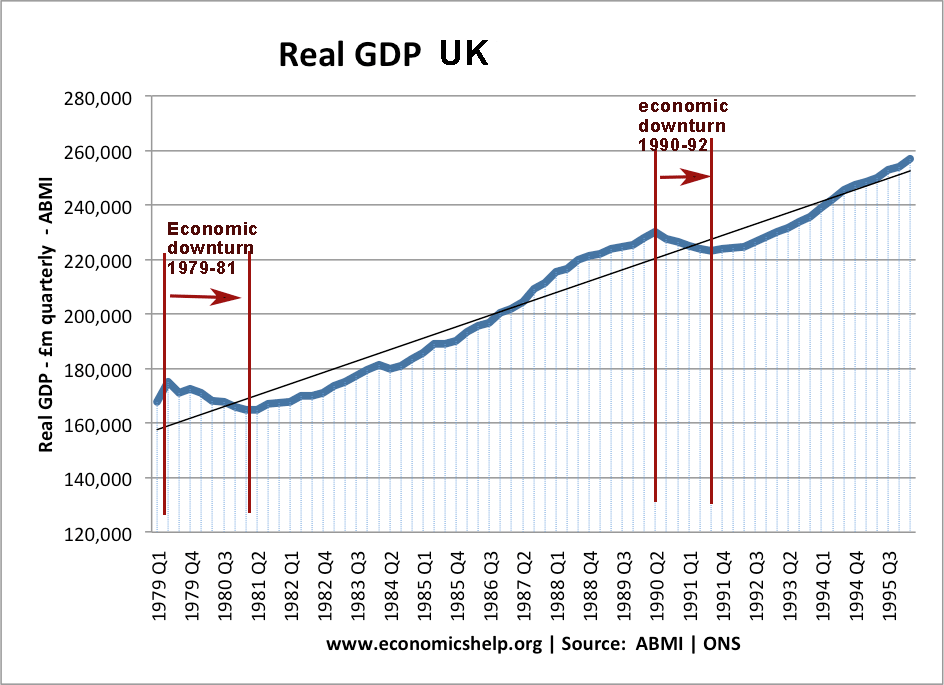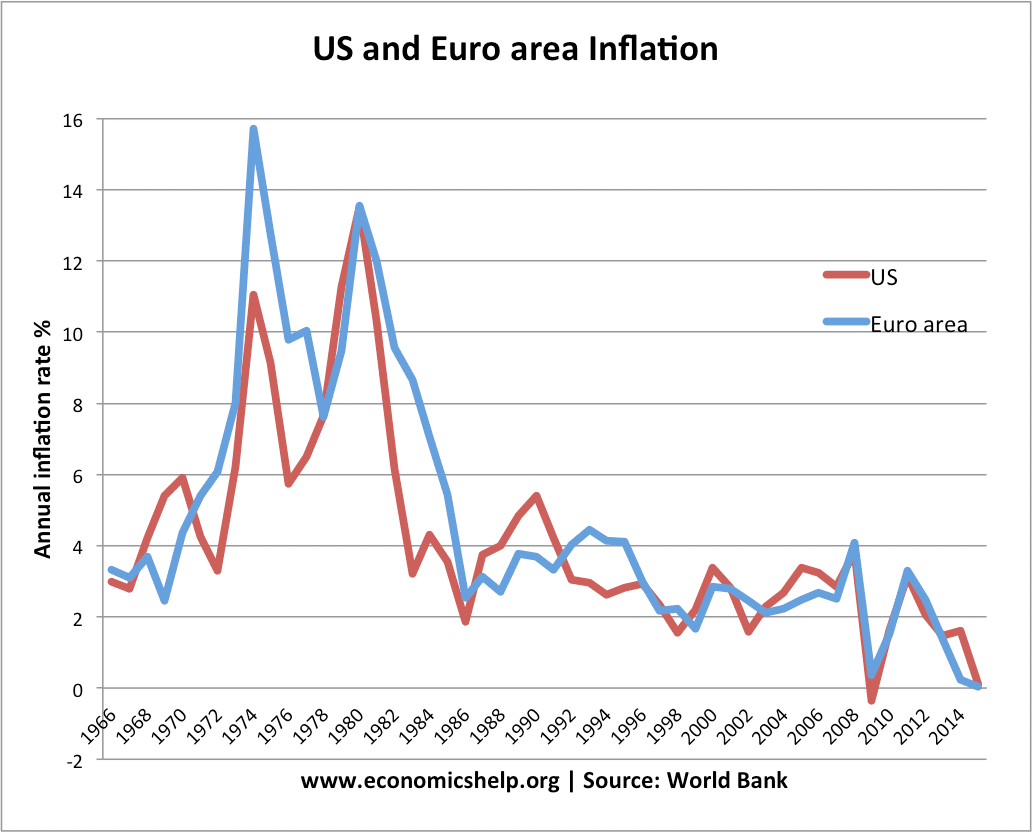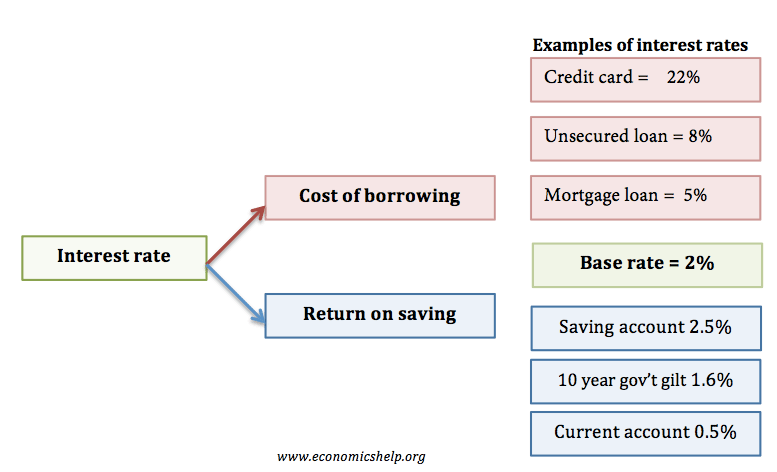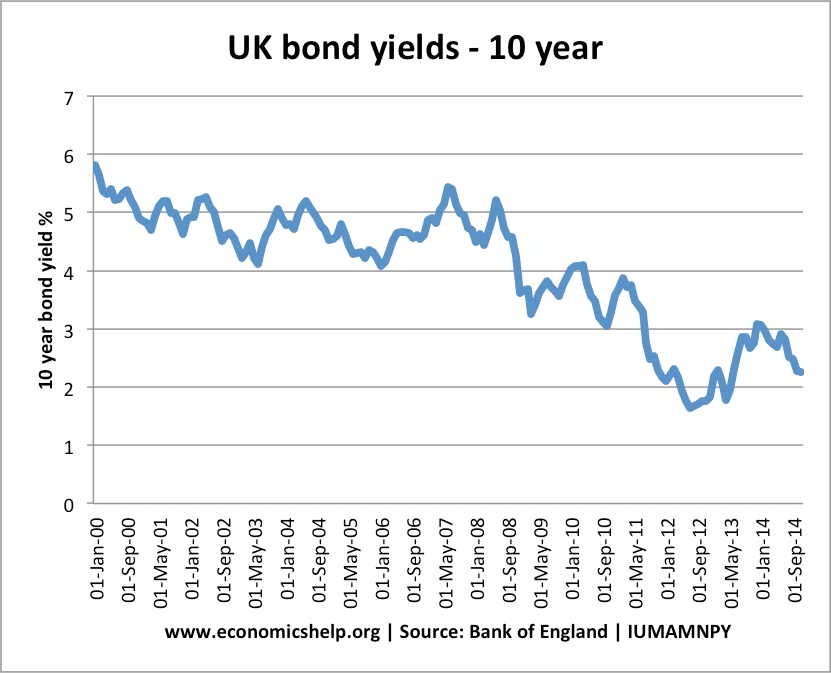Impact of Inflation on Savers and Borrowers
Inflation means a sustained increase in the cost of living. It means the value of money will decrease. If you owe someone £1,000, inflation will make this relatively easier to pay off. Assume that if prices go up by 10% a year wages also increase by 10% a year. This means each year you …

